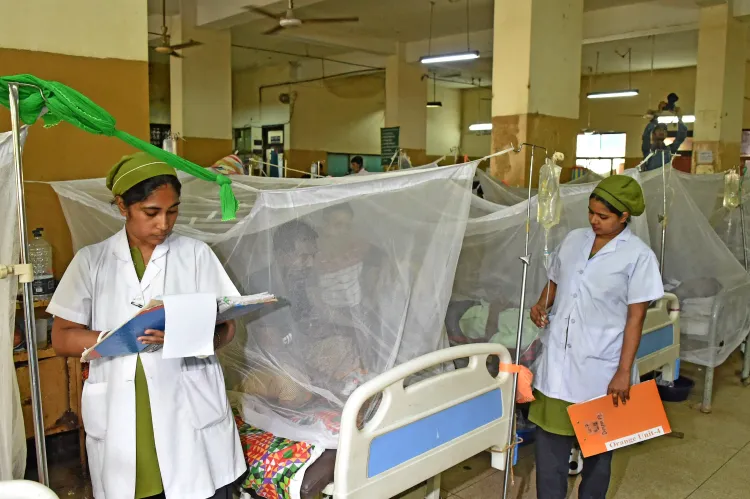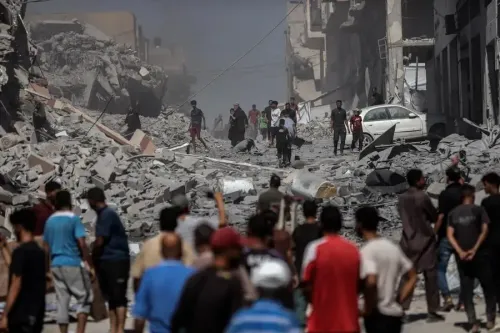What is the Current Dengue Situation in Bangladesh?

Synopsis
Key Takeaways
- 12 new dengue fatalities reported on September 21.
- Total deaths in 2025 reach 179.
- 740 new patients admitted recently, totaling 48,831 confirmed cases.
- Public health experts warn of a rapidly worsening situation.
- DGHS implements new guidelines for improved hospital care.
Dhaka, Sep 21 (NationPress) A tragic toll of 12 individuals has succumbed to dengue in Bangladesh on Sunday, bringing the cumulative death count in the country since January 2025 to 179, as reported by the Directorate General of Health Services (DGHS).
Healthcare officials stated that during this period, 740 new patients were hospitalized, resulting in a total of 48,831 confirmed dengue cases for the year 2025.
Currently, 2,021 patients are receiving care across various hospitals in Bangladesh, according to United News of Bangladesh.
The recent fatalities were recorded in multiple regions: five in Barishal division, three in Dhaka North City, two in Dhaka South City Corporation, and one each in Chattogram and Mymensingh divisions.
New dengue cases emerged in Barishal (165), Dhaka (outside city) (147), Dhaka North (122), Dhaka South (115), Chattogram (77), Khulna (52), Rajshahi (28), Mymensingh (22), Sylhet (9), and Rangpur (3).
Public health experts have raised alarms about the situation deteriorating more rapidly than in 2024.
Last year, 575 lives were lost to dengue in Bangladesh, prompting demands for urgent mosquito control measures and enhanced hospital preparedness as cases surge.
On September 16, the DGHS released new guidelines aimed at improving treatment for dengue patients in public hospitals. These directives mandate that all hospitals establish specialized wards for dengue care and form dedicated medical teams.
The DGHS anticipates that these measures will enhance patient care, mitigate risks, and elevate the quality of hospital services, as reported by local media.
The directive from DGHS Director (Hospitals and Clinics) Abu Hossain Md Mainul Ahsan emphasized the importance of ensuring hospitals have special provisions for dengue patients, including facilities for NS-1 tests, emergency services, and adequate medications.
Dengue patients must be accommodated in designated wards or rooms, and ICU support should be prioritized when necessary. Additionally, healthcare providers are tasked with specific responsibilities.
The directive also highlights the formation of a board comprising specialists in medicine and pediatrics for effectively managing dengue and chikungunya cases.
Under this board's oversight, trained medical personnel will care for both dengue and chikungunya patients.
Furthermore, the same board and physicians are instructed to provide treatment to suspected patients visiting outpatient departments in hospitals.
The directive mandates that hospital directors communicate with city corporations or municipalities to initiate mosquito eradication and cleanliness initiatives around hospital environments.
Moreover, a weekly coordination meeting to address dengue must be chaired by hospital directors, superintendents, and civil surgeons every Saturday.









